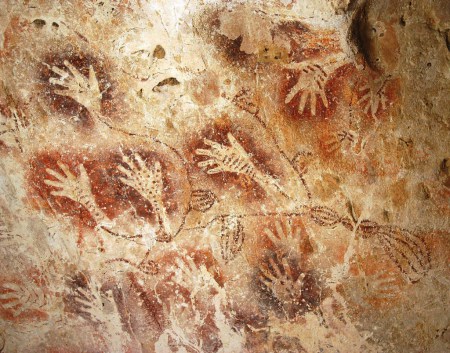What Decolonization Is, and What It Means to Me
“Decolonizing is about reclaiming what was taken and honoring what we still have.”
Tina Curiel-AllenMAR 3, 2018 9:00PM EST
https://www.teenvogue.com/story/what-decolonization-is-and-what-it-means-to-me
In this op-ed, Tina Curiel-Allen, a Xicana/Boricua poet, writer, and activist, explains decolonization for those who may not be familiar with the term or process. It is important to note that Tina is writing from California, in what is now known as the United States; her family comes from California, other parts of the U.S., and parts of Mexico. She is not attempting to speak for all peoples with regard to decolonization but rather for the community she is a part of, as well as the elders and teachers she says she’s fortunate enough to know.
To talk about decolonization, people need an understanding of what we are decolonizing from. Colonization is when a dominant group or system takes over and exploits and extracts from the land and its native peoples. Colonization has taken place all over the globe, through the stealing of lands; the raping of women; the taking of slaves; the breaking of bodies through fighting, labor, imprisonment, and genocide; the stealing of children; the enforcement of religion; the destruction—or attempts to destroy—spiritual ways of life. All of these things have left a psychological, spiritual, and physical imprint on indigenous peoples, and a governmental ruling system that we did not create, that was not made for us. These are the things we need to heal from, where we need to start reclaiming. This is where organizing and decolonizing comes in.
How do those who have been colonized go about decolonizing? It is in the interest of the colonizer to divide and conquer, to separate us from community, so speaking from a place of we is necessary when talking about decolonization. It is as political and communal as it is personal.
The elders say we decolonize through our bodies and our values, which quite literally means through the senses. Scent is strongly tied to memory, so we burn sacred herbs, resins, and woods to cleanse and reconnect. We remember by listening to drum and song, the rattle of the gourd, the whistle of the flute, and other instruments. These remind us of a life rhythm that can be easily drowned out in the business of American life. They bring us back home, to ourselves, and to the interconnectedness of all things. We put our hands on the earth and pray to honor the mother who never leaves us. We use many things for sight—art, images of our ancestors, of our old gods and goddesses, of our spirit guides.
We communicate by how we dress, through feathers, fabrics, jewelry, and other things. We also try to view the world and one another differently, to honor the sacred in all of us. We can see with more than just our eyes — beyond what can be “seen” or proved. Taste is through things like tobacco and through the kinds of foods our relatives ate and grew for generations. These foods are more common than you might think — things like corn, beans, chile, and squash. Foods that nourish our bodies and connect our spirits to the earth they grew from. We are also mindful of the words we say and take in, as they can feed or poison us. It is important to speak with PALABRA (which means “word”) or integrity, to be kind to others, and treat them as if they were you, because in many ways they are.
Decolonizing is about reclaiming what was taken and honoring what we still have. This takes conscious work and effort. There is value in actively seeking what was lost, in remembering what was forgotten. Values matter to us as individuals and as a community. Many of our parents or grandparents would bless us as we were leaving their homes. We honor that, and our connections to new family members, through building community. We respect and take care of each other. Before capitalism, we literally needed each other and the earth to survive. We have not forgotten that. We honor the sacred in everyone and know that no matter what others might say, no one makes it alone. We still live with the trauma of what colonization did to us. We are trying to heal to make things better for future generations, so they can carry a little less of the burden. We do this work not only for ourselves but for the future, for the next seven generations to come. This means that we are always aware of how our words, intentions, actions, and prayers affect not only us but future generations to come. Our plan is to leave things better than when we got here.
I could write about ceremony, the sweat lodge, prayer, or dance — about finding ways to let go of things that hurt us. Decolonization of the mind is best left for another conversation, as there is much to be said on that subject as well. What I hope to have expressed to you is that decolonization is a way of life — a path forward that connects us to our past, present, and future. It is personal, political, spiritual, and intentional. If the most I have done is introduce you to questions about what decolonization means to you in your own life — wherever you might be reading this from — then I have done well. From here, the conversations, the actions, the seeking and building of community, these things are up to you. And they are possible! We are living proof of that. All my relations.
